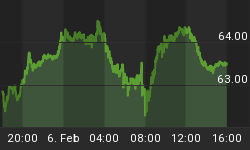We continue to disagree with ECRI's Lakshman Achuthan, who is trying too hard to be the media leader for the no-second-dip consensus economic expectation with his continued forecast of a sustainable economic recovery, albeit "sluggish," as he stated in his CNBC interview this morning.
The first four .gif file charts illustrate how the economy is continuing to perform as we expect from a leading indicator point of view: falling back into the second dip of a severe, multi-dip, US-led, global business cycle contraction.
To put that forecast in context of our longwave expectations, the fifth attached .gif file chart that summarizes our SMECT-based multiple-recession expectation for this deflationary economic BAAC Supercycle bear market period, or K-cycle winter. I more than welcome feedback on this new chart.
We also disagree with a Wall Street venerated economist, Ed Hyman, who is quoted as saying: "ISI Group Chairman Ed Hyman believes that gross domestic product should grow by 3 percent to 4 percent in the fourth quarter, thanks in part to the home mortgage refinancing boom and the delayed impact of repeated interest-rate cuts." http://www.naplesnews.com/02/09/business/d826043a.htm
We have followed Ed Hyman's work for decades. He's an economic trend follower, so that his constant short term adjustments put him ahead of most economists most of the time, but he has lagged every economic peak and trough even though his short term approach beat most all of them.
For example, he did not predict the latest recession in advance, but he closely followed its development and thus his recession call and forecast beat most other economists, but not all of them. He and his staff have little idea of the bigger picture or what's coming down the pike several quarters in advance, to which criticism he would agree because Wall Street won't pay them to make, much less stick with, such "long term" economic forecasts.
They prefer the up-and-down weekly and monthly tracking and forecast changes as it readily "accommodates" their need for a high volume of securities transactions, which Wall Street lives on and which generates the soft dollars that fund Hyman and his staff's research. We know - we've been there and done that. Thus, Hyman and his staff do not incorporate any longwave concepts, or what we call Supercycle economic periods, or K-cycle seasons.
Although we agree with his analysis most of the time, when our model differs, it has *always* been more accurate, and not surprisingly that is largely because it incorporates the context of the macro trends or longwave picture.
Bottom line: our forecasting model suggests that Hyman is too bullish about fourth quarter GDP growth, and because of his good tracking record, we predict he will downgrade his forecast as the recession's second dip becomes clearly apparent to close observers of the business cycle. In fact, since he is an economic bellwether, our expectations depend on his next several week's reports beginning the process of his downgrading his expectations for fourth quarter GDP growth.















